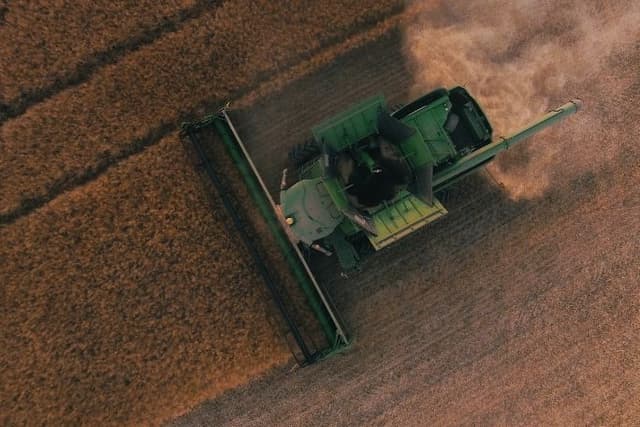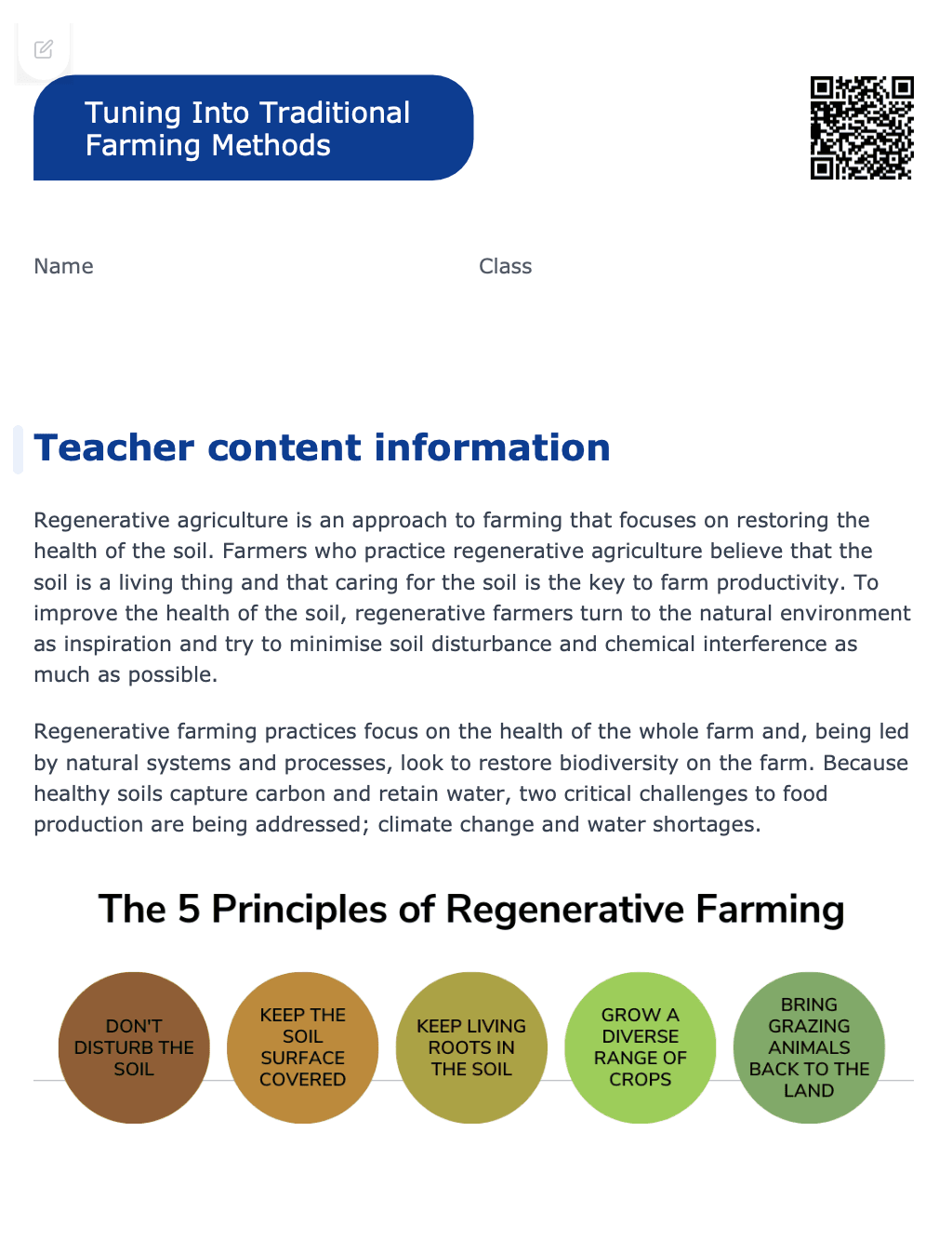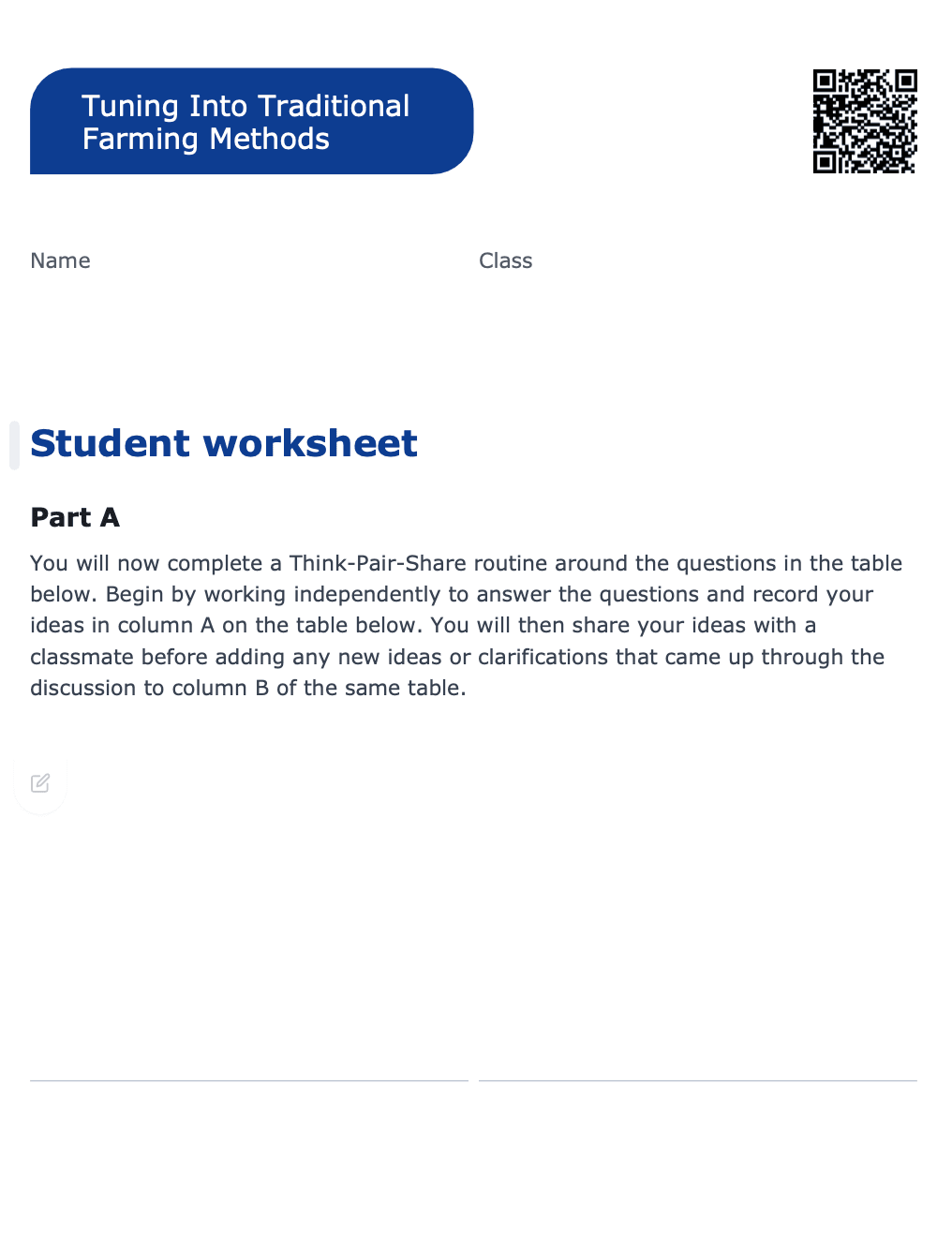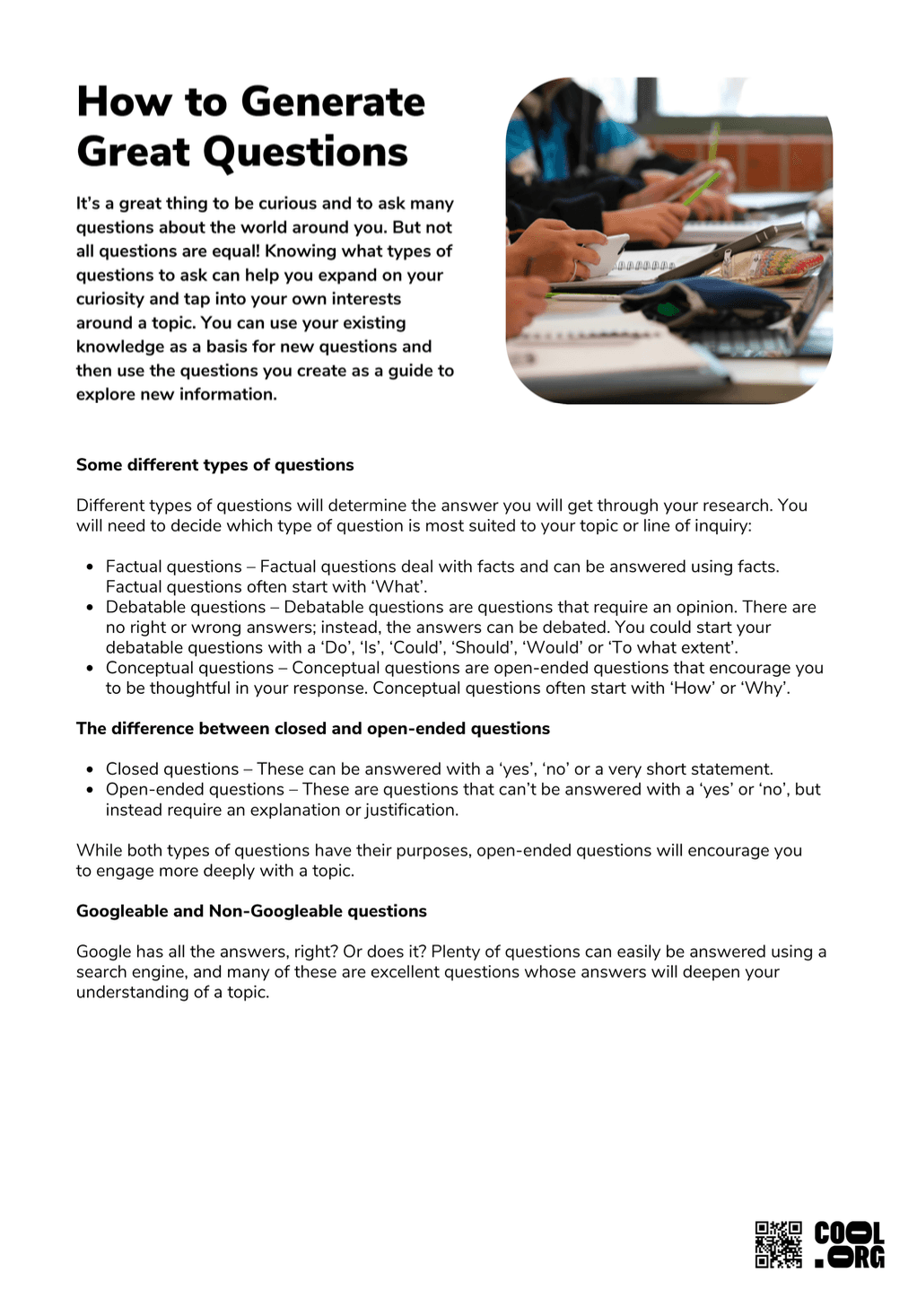
Tuning Into Traditional Farming Methods
Lesson1 of 11 in this unit
SecondaryYear 9Humanities and Social SciencesGeographyEnvironmentalSustainability
Summary
Lesson Guides and Printables
Teacher Content Information

Lesson Plan

Student Worksheet

Generating Great Questions Factsheet
